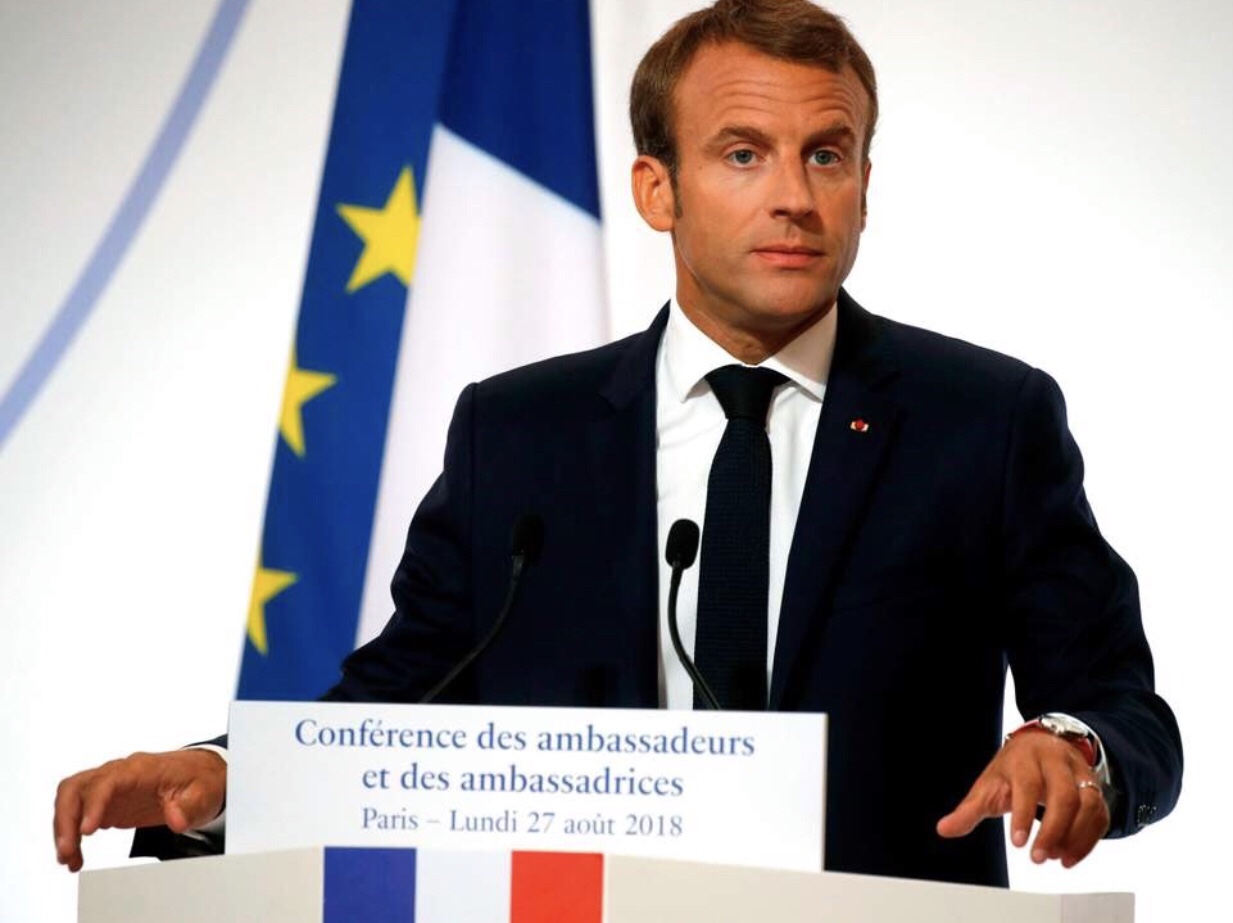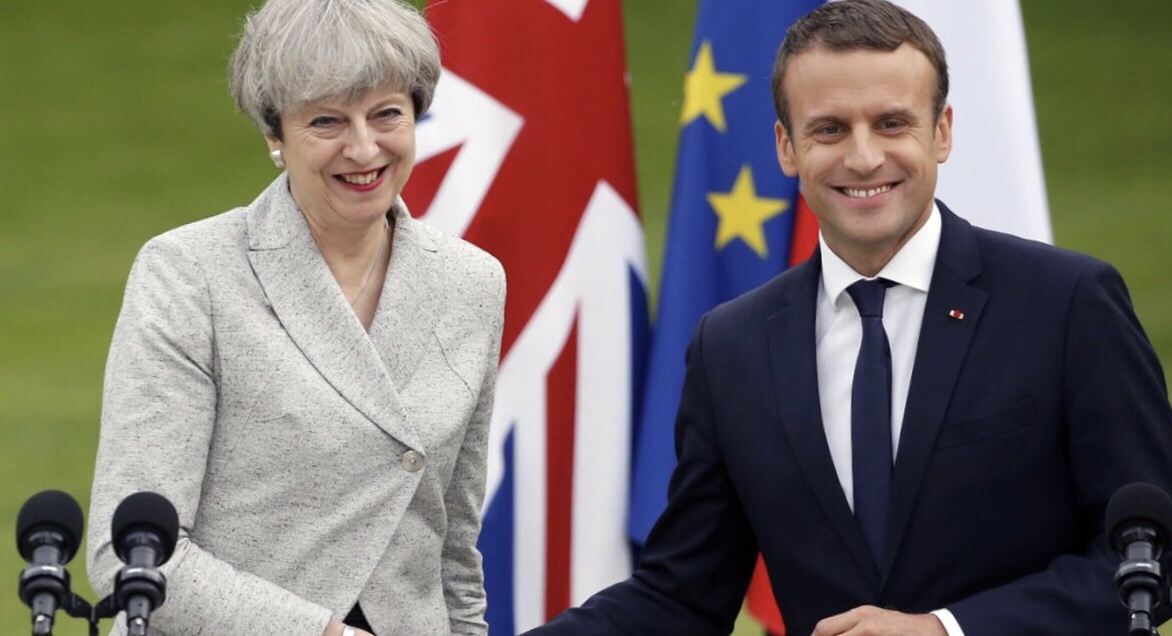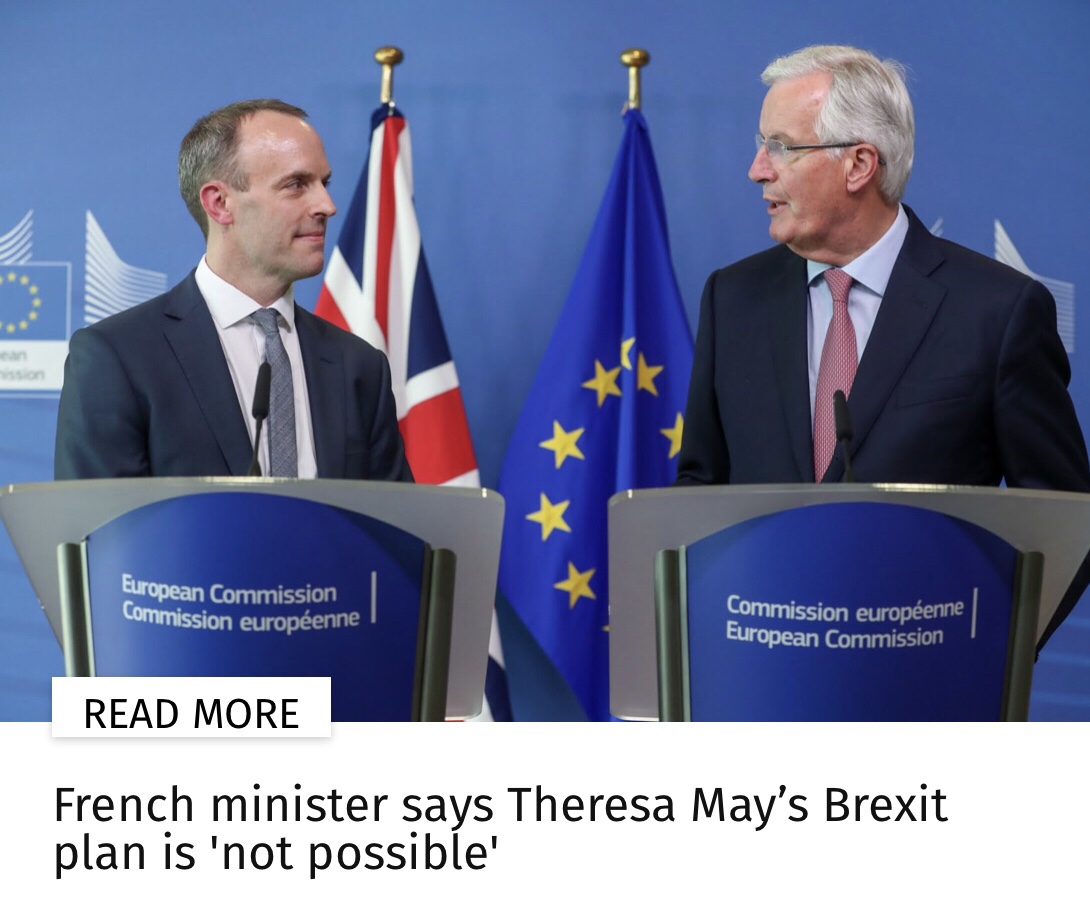Emmanuel Macron’s post-Brexit vision
Is Emmanuel Macron’s post-Brexit vision is too complex to be workable? This question is posed by The Independent in an article today.
I think the idea of using Brexit to re-launch the EU is interesting. A debate about the future of EU in the light of Brexit has been missing. Now it can start.

Macron did talk about his ideas for the European Union already during his Presidential election campaign, which means that the French people did give him an open mandate for pushing these ideas by his election. At the dame time there are many question marks yet, The Independent raises some of them – there are others too. Anyway, the discussion is healthy and should be central in parallel with the Brexot negotiations.
Here is the text from the article. You judge yourself.

The imaginative intervention by the French president has been welcomed – but the detail may make it impractical.
As “Mr Brexit”, Dominic Raab heads to Brussels for what is billed as a “marathon” talks session, the key to breaking the deadlock between the two sides remains elusive. It says much for the parlous state of these Brexit negotiations that some vaguely encouraging words from the French president are greeted with the same enthusiasm someone starving might display for the sudden arrival of an exquisite freshly baked croissant from The Great British Bake Off team.
So used, in other words, have the British grown to the notion of a miserable, or at least chaotic, no-deal Brexit that the suggestion that ties between the UK and the EU might in future remain close is greeted with delirium, certainly in Remain circles. How far we have travelled from this being the “easiest deal in human history”, as Liam Fox once claimed.
Emmanuel Macron, with some statesmanship, has intervened in the Brexit debate, and indeed the debate about the future of the European Union, with his usual elan. Temporarily, he seems distracted by a row about his strange reference to his own people as “resistant to change” compared with the “Lutheran” Danes who were hosting him on an official visit.

Despite his surprising string of PR disasters, he is still the nearest thing Europe presently has to a political leader. The president has given a strong steer to the EU negotiators that the British should be treated more sympathetically, and that France wishes to keep ties across la Manche “as close to possible”. Michel Barnier, head of the EU team, has also spoken of an “unprecedented” deal awaiting the UK, perhaps after a nudge from Paris.
Mr Macron may have been persuaded of a softer approach to the British during his brief mini-summit with Ms May earlier this month. Most likely, from the tenor of his recent remarks on the future of Europe without unconditional American support, he is growing alarmed that Brexit might mean a weakening in EU security. Britain’s military means and status may be denuded after waves of defence cuts, but it is still ahead of all of its European allies, and, with France, the only nuclear power this side of the Atlantic Ocean. It is one of the few areas the Europeans need the British more than vice versa.
Structurally, Mr Macron envisages a more stable new framework for European relations. This he will reveal to his counterparts at the EU summit in October. He has also revived the idea of a Europe of “concentric circles”, which has been going around policymakers and think tanks on and off for decades. It would place Britain in an outer, probably the outermost, circle of European nations, perhaps with other current European Economic Area nations such as Norway, or perhaps even occupy a special outermost limits area with the likes of Moldova or Ukraine.
At the “core” of Europe’s concentric circles would be those nations that accept all of the current integration projects, plus some others: the euro, the Schengen area, the customs union, the single market and various other agencies and conventions. A “fiscal union” would be an ambition of Mr Macron, which he would hope to persuade financially sound states such as Germany, Finland and the Netherlands to join, to cement the monetary union and stabilise the euro. He might encounter resistance from the governments of all three, in which case the “core” might prove very small indeed.
“Core Europe” might also subscribe to a more formal commitment to sharing the settlement of refugees, something to which states such as Hungary, Italy and the Czech Republic are adamantly opposed. The central core might well also acquire some enhanced European defence capability, building on the existing and overlapping ad hoc arrangements.
Oddly, though, the UK is already more embedded in the notion of a “European army”, the Eurosceptics’ worst nightmare, than many appreciate. In June, for example, the Leave-supporting defence secretary, Gavin Williamson, signed up to the European Intervention Initiative, alongside France, Germany, Belgium, Denmark, the Netherlands, Estonia, Spain and Portugal – all EU states. Britain is still a member of the European Defence Agency, and, of course, is allied via Nato, with EU partners and non-EU European partners (Iceland, Albania, Montenegro and Norway).
The alternative to the concentric circles model, also long bandied around, would be a “variable geometry” Europe, which might suit the trends already developing in the bloc. Thus Italy might find itself in a circle along with other states that opt out of the agreement on migrants and also leave the euro. Norway, as now, would be inside the defence agreement and single market, but outside the euro and single market. Sweden would, perhaps, retain its historic neutrality and Schengen group membership and remain outside the defence pact and the euro but, as now, agree to a convention on the settlement of migrants. Ireland might follow suit, but retain the euro and stay outside the Schengen area. Finland and Austria are historically bound, on Russian insistence, to be neutral. Switzerland, meanwhile, is inside Schengen.
It would be, as Mr Macron puts it, “more Europe” for some states but a looser, more flexible arrangement for others, recognising the political stresses that nations including Austria, Italy and Hungary find themselves under.
Mr Macron’s vision is certainly imaginative, and one that EU leaders can take a view on before their Brexit-focused summit in October. It would mean, inevitably, French leadership as the driving motor of the core European Union’s federalist project, while retaining close relationships with member states not yet ready for such pooling of sovereignty. It would also mean a Europe of enormous complexity, in which politicians, policymakers and citizens would have to keep a particularly complex Euler diagram to hand when planning holidays, let alone contemplating their political futures – and, thus, possibly impractical.
So far as the immediate application of President Macron’s principles are concerned, we have a clue from France’s Europe minister, Nathalie Loiseau, who has said that the UK could not expect a deal which gave it both the economic “benefits” of a Norway-style association agreement with the EU but the lesser “obligations” of a Canada-style free trade deal: “There is something in between, but there has to be a balance between the rights and obligations in relations with the EU.” That would certainly be a disappointment for Mr Raab.
Useful as the concentric circles may prove to be one day, it is also obvious that this is a project that will take even longer than Brexit, and leaves us more or less where we started – with a looming deadline and an alarming lack of concrete, legally sound treaty-ready agreements.
Source: The Independent
You must be logged in to post a comment.